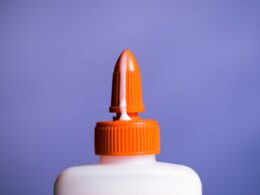There are several different treatments for PE. These include numbing creams and sprays, available by prescription or over-the-counter. These numb the head and shaft of the penis and help to delay ejaculation. Behavioral therapy and sex therapists can also be helpful. Antidepressants, such as selective serotonin reuptake inhibitors (SSRIs), may improve PE.
How long does it take to ejaculate?
A man’s ability to control ejaculation during sexual intercourse is crucial to satisfying sex. When a man loses control of his orgasm, it can lead to a variety of problems that affect both him and his partner. Some men ejaculate more quickly than they want to, which is called premature ejaculation (PE). If you are having trouble controlling your PE, you should see a doctor or health professional for advice and treatment options.
There is little research on the causes of PE, but many experts believe it’s due to a combination of biological and psychological factors. Some people may have a hypersensitive penis that is easily stimulated, while others might be experiencing anxiety about their sexual performance or relationship issues.
If your PE is a result of anxiety, you can try to calm yourself by focusing on nonsexual things. For example, you can try visualizing a list of things you are grateful for, or try naming sequences such as the names of businesses or players on your favorite sports team. You can also ask your urologist for help. They can recommend a sex therapist or couples therapist, and they can teach you a range of techniques that can help you regain control of your PE.
In some cases, medications can also be helpful. For example, SSRIs can delay PE by slowing down brain activity. These drugs are usually used to treat depression, but they can also be taken “on demand” before sex to reduce PE.
How long does it take to get an erection?
The length of time it takes to get an erection depends on many things, including how much stimulation you or your partner receive. It can also depend on the type of sex you’re having. During sex, your penis gets bigger as your capillaries fill with blood, which causes an erection. Your erection can last a few seconds to a few minutes, depending on how much you or your partner stimulate it. It’s important to remember that it’s normal to ejaculate during sexual activity, but you may want to work with your partner on techniques that help you last longer.
Premature ejaculation is often caused by anxiety, excitement or overstimulation. It can also be a result of a lack of confidence or guilt. It can happen at any age, and it’s more common during early sexual experiences or after a long period of abstinence. It’s usually a lifelong problem, but can sometimes go away as you gain experience and learn to control it.
There are a variety of treatments that can help you control PE. These include behavioral therapy, psychotherapy, medications (such as antidepressants) and numbing creams. Your health care provider may suggest these, but you can also try them on your own. One example of a behavior modification technique is the start and stop method. You or your partner stimulate the head of your penis until you feel like you’re about to reach orgasm, then stop for 30 seconds or so. You can then start up again. This can be repeated a few times to help you last longer.
How long does it take to stop ejaculating?
Premature ejaculation is a frustrating problem that can affect your self-confidence and your relationship with your sexual partner. It can make it hard to reach orgasm and may cause you to ejaculate before penetration during sex or before you have the opportunity to perform oral sex. Fortunately, it is usually easily treatable.
The cause of PE is unclear, but it may be due to a combination of factors. Some experts believe that it is caused by low serotonin or dopamine levels, which are chemicals in the brain that affect sexual desire and excitement. Others think that it is caused by a penis that is extra sensitive to stimulation. Finally, some people believe that PE is caused by emotional or psychological factors, such as stress, a fear of failure, or relationship problems.
If you suffer from PE, the first step is to talk to your healthcare provider about it. Your healthcare provider will ask you about your medical history, including any current health conditions and medications you are taking. He or she will also ask you about your sexual habits and whether you have any other physical or mental disorders.
One of the most effective ways to treat PE is to use anesthetic creams or sprays to temporarily desensitize the head and shaft of your penis. These medications are easy to use and have a low risk of side effects. You can purchase them over the counter or with a prescription.
How long does it take to get back to normal?
The good news is that premature ejaculation is typically treatable. If you ejaculate earlier than you want to during most sexual encounters, talk to your health care provider about it. They may recommend sex therapy or counseling to help you learn how to handle sex and relationship issues. They might also recommend a physical exam. They might find that a health condition like anxiety or depression is contributing to your PE. They might also prescribe medications to control your symptoms.
For example, selective serotonin reuptake inhibitors (SSRIs), such as citalopram (Celexa(r)), escitalopram (Lexapro(r)), fluoxetine (Prozac(r)) and sertraline (Zoloft(r)), can delay ejaculation. The tricyclic antidepressant clomipramine (Anafranil(r)) can help as well. In addition, numbing creams or sprays applied to the head and shaft of the penis can help delay ejaculation.
Most men who have PE find that the condition improves with time and treatment. However, it can take a long time to get back to normal. In the meantime, try to enjoy your sex life as much as you can and don’t let your PE interfere with your relationships. Ultimately, overcoming PE can be a challenge, but it’s usually worth the effort. Getting better at sex and preventing PE can bring you closer to your partner, so don’t give up! Keep in mind that it’s normal to experience some over-excitement and over-stimulation during sex, especially when you’re in a new relationship or engaged in a new activity.









